In pictures: Disciples' London studio
We get the lowdown on the gear that makes them tick at their Rich Mix complex
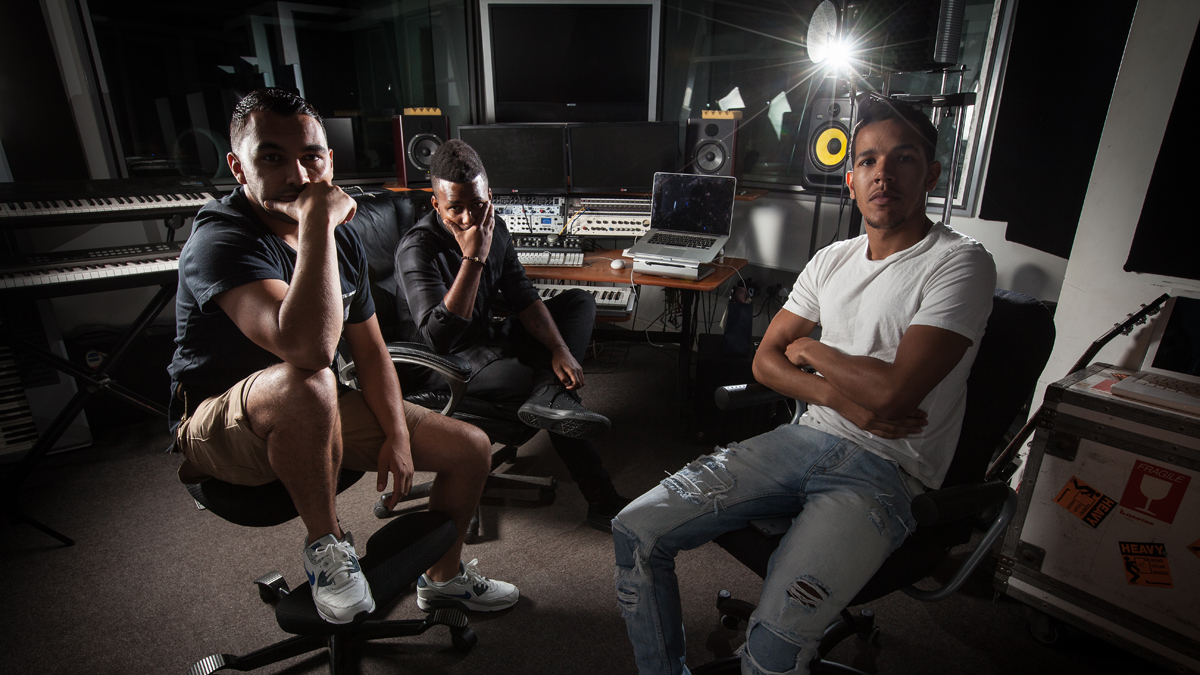
Intro
Production/DJ trio Disciples arrived on the House scene with a bang earlier this year, scoring a surprise top 30 hit with the single They Don’t Know. The versatile-sounding trio, comprising three members – Duvall, Luke Mac and Gavin Kool – were mentored by Pete Tong, having been snapped up by his FFRR label early in their careers.
Far from your typical ‘boy band’, the London/Surrey-based group write, sing and produce all of their own material and have garnered respect for their attention-grabbing DJ sets. As a collective, their individual talents complement each other amazingly well and, due to their enthusiastic grasp of technology, Disciples more than know their way around a studio!
Come with us as we look through the keyhole in their London studio...
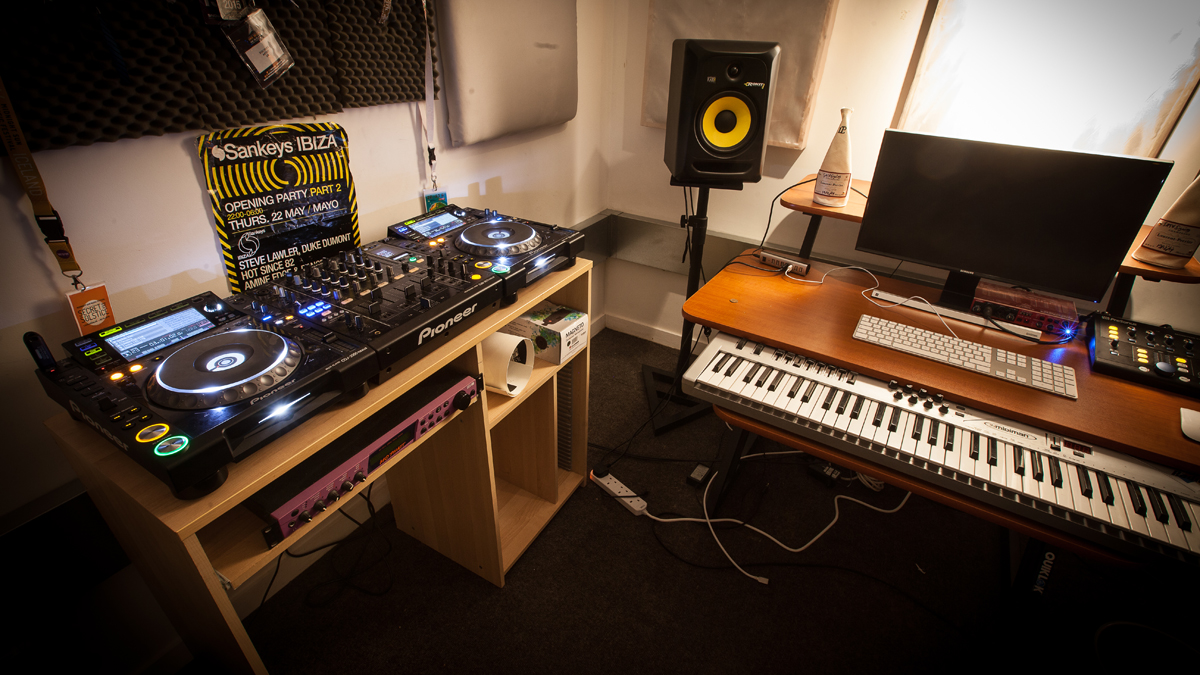
Where it all started
How did Disciples initially come together?
Duvall: “It was quite organic actually. I met Gavin in college when we were 17 or 18 years old because we liked Hip-Hop and R&B; then I met Luke five or six years after, and he was a very talented rapper and arranger.
“We were working together on individual projects before we formed, writing and producing for other people and also ourselves with the intention of releasing records individually. We eventually realised we were doing three projects in one, so why not save time and money and just do one project?
“The name Disciples came about and stuck and we got to use these studios at Rich Mix. It’s all part of a publishing company called Phrased Differently. Luckily enough, it was part of my deal to acquire this studio complex; now we make all our music in this building and have 24/7 access.”
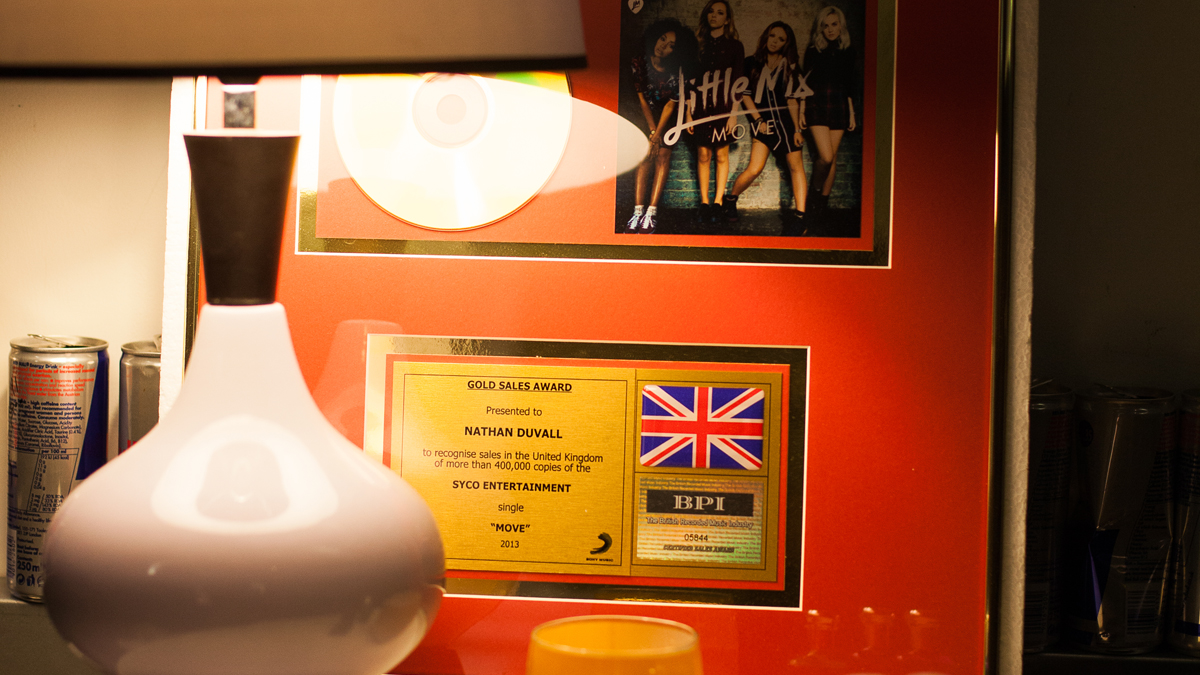
Key to success
Were you surprised by the instant success of the single They Don’t Know?
Duvall: “We had a few soft releases before that. We released an EP with another label called New State and one more single before They Don’t Know. It was initially a Beatport release, but it took on a life of its own.
“We’re all in agreement that we love the fact it did what it did because it’s quite different; it doesn’t have a verse, pre-chorus or chorus – it’s not really a song, it’s a vibe. For other people to understand and like that felt good, because we’re stuck with our own craziness in the studio and never know what’s going to happen – or even if people will like something.”
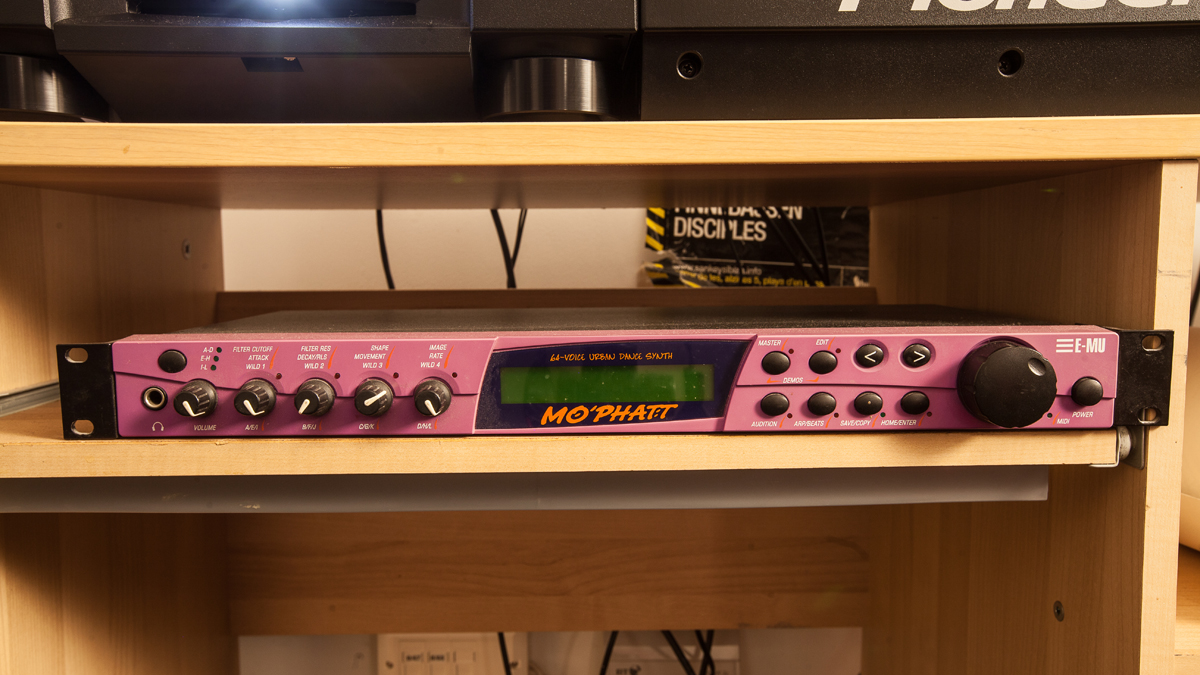
Logical steps
What gear did you first buy to make music?
Luke: “I was mainly a vocalist before, and I specialise in arrangement. But when I met Gavin and Duvall I realised I could also produce, so Duvall gave me a MIDI keyboard with Logic. At first, I used Sylenth and a Minimoog virtual synth.
“If you have an ear for music, you know what sounds good, what works and what doesn’t; from there it’s about getting your head down and figuring out how to use the programs. If you know how to make music it should come; if it doesn’t then you’re not supposed to be a producer [laughs].”
Gavin: “When I was in high school and college I started off on Cubase. That’s when I first realised I had a love for production and using software to make beats and stuff. But as soon as I knew I wanted to do this as a profession, I switched to Logic 5, although I had no idea how people actually got sounds because it was just a basic sequencer. So I did some research, bought a Mo’Phatt synth and sat in a dark room for about six months.”
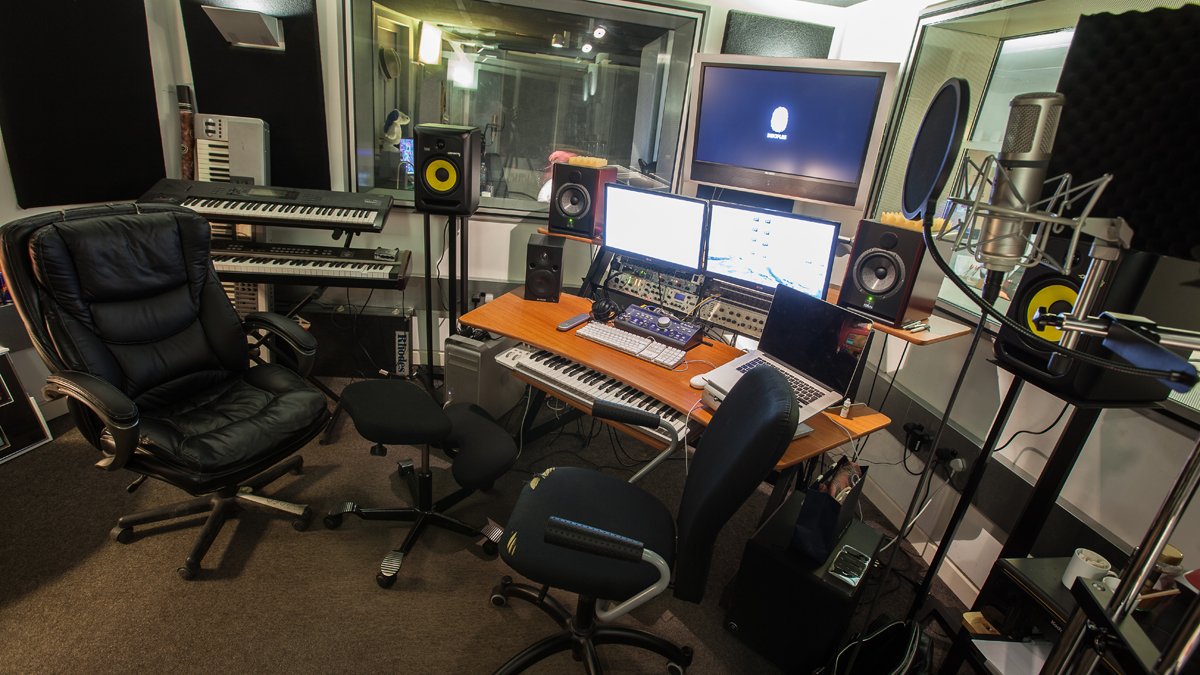
Playing to your strengths
How are your separate roles defined in the studio?
Duvall: “I think it depends what we’re working on. We can go away individually and bring ideas to the table and jump on them in different ways. Luke’s very good with arrangements and vocals; I’m good with chords, finding sounds and putting them together; and Gavin’s very technically gifted when it comes to the mix, especially percussion and understanding grooves and bassline rhythms.
“We worked on a track recently that was pretty much finished, and then Luke worked on it at home, did some additional production and brought it back. So it’s very efficient now, but if we were going to start together from scratch in a room, I’d probably start with a chord-based idea, then Luke and Gavin would jump on – it’s like a little conveyor belt.”
Luke: “I think it works quite well because everyone has their own strengths. We all need each other to finish certain parts off. If we all played chords or drums, we would probably have arguments about whose drums or beats are better, but because everyone has their own particular strengths, we don’t have any problems in relying on each other.”
Gavin: “It varies a lot because we have a fully-fledged songwriter in the group and a big production influence, so someone will literally come up with a concept for a song and we’ll work around that, but the majority of the time the track will form using a sound or drum loop to start the ball rolling. The origins are different, but when we sit down it’s sounds and grooves that spark the whole process.”
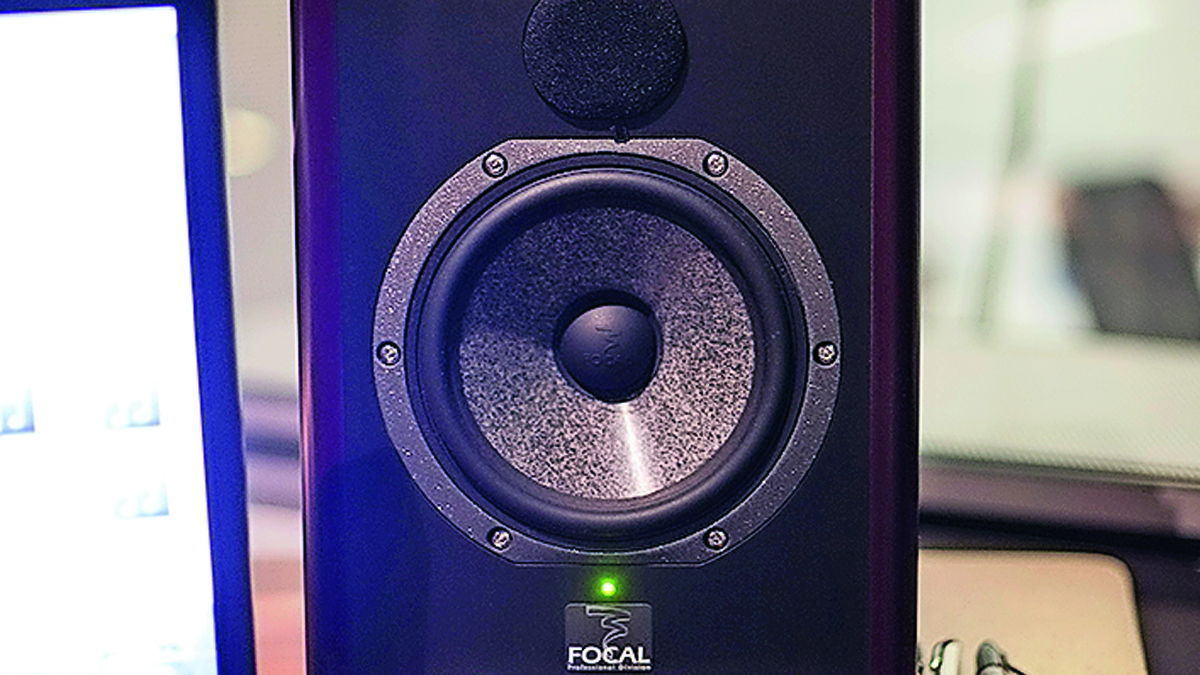
Keeping it all in check
You have a nice collection of monitors...
Duvall: “I started with the Mackie HR824s, because vibe-wise the bass frequencies are unbelievable. You can produce anything and you don’t have to worry about levels – they sound great instantly.
“Then I got a bit more serious and moved over to the Focal Solo6 Be, which sound dead by comparison, but they’re very sensitive. For mixing they’re fantastic and produce a very true sound. Whatever you hear out of those is usually what you’ll hear on five or six different systems, whether at home or in the car.
“I’ve got a pair of Yamaha MSP5A bi-amplified speakers for referencing, just to make sure I’m not losing my mind, but the new addition are the KRK Rokits, which Gavin got me into.
“Vibe-wise, if I want to pump something and feel it while we’re producing, I’ll put those on. To make things easier we use the big knob monitor controller to switch between the monitors and control the overall output.”
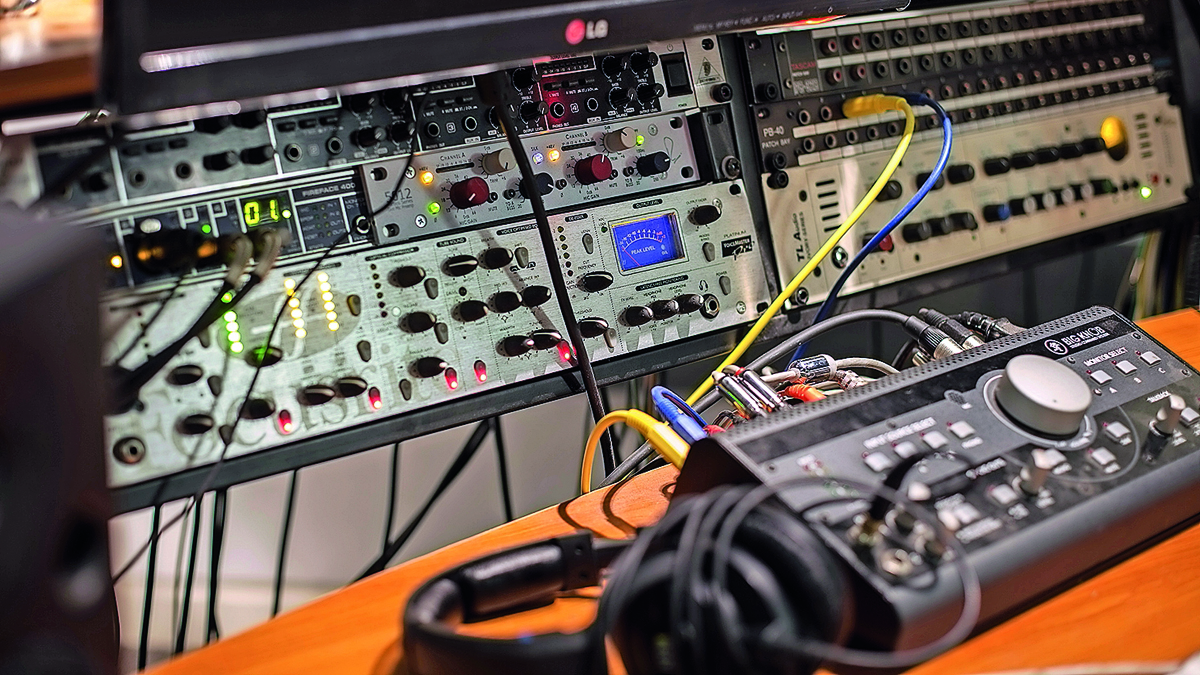
Essential tools
What other outboard gear are you using?
Duvall: “Everything else we use is mainly for vocals, and we do all those in-house. I run everything through the Neve channel strip first, and then it goes to the Focusrite VoiceMaster, which has this fantastic-sounding warm centre. We run all that before the vocals even get into the box, so what the vocalist is hearing is quite a nice, compressed sound. It’s annoying for other producers who want to mix our stuff, because usually they like to add their own compression, but I love to get a great sound straightaway.
“Next to that I have an old TL Audio compressor, which has a very vintage sound to it, perfect for a ’60s/’70s-influenced sound.”
Gavin: “The only other thing that we’ve missed out is the boxing gloves and headgear, so that when we’re arguing about what sound or plug-in to use we just go for it, and whoever’s on the floor first loses so we don’t have to use their plug-ins.
“Arguments are inevitable with three strong-minded people who are into different types of music, but I think that’s where the magic comes from. When you knock heads together a lot you end up knowing when to trust that person in a particular area of production. Then, as you move forward, it becomes a lot more free-flowing.”
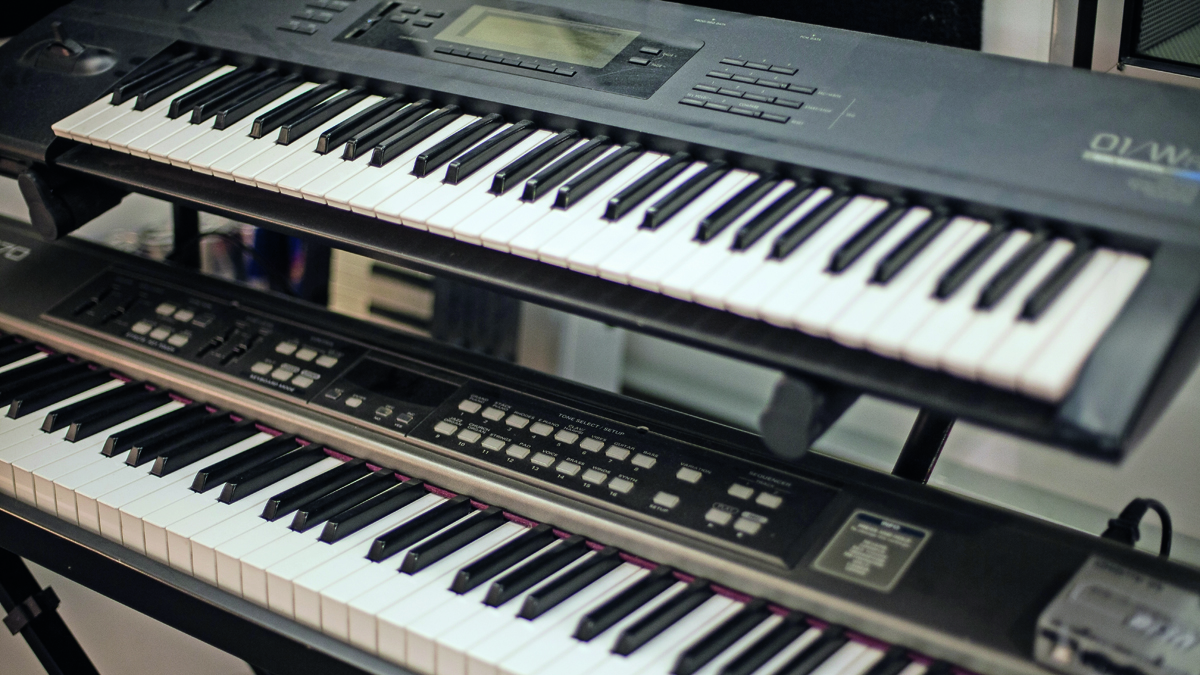
Classic keys
What hardware gear can we find in your current set-up?
Duvall: “In terms of keyboards, we just use them as controllers now. We’ve got a Korg 01/WFD, which was actually left here by someone who used to own the studio. It has a very vintage sound and the pianos are very ‘Korg M1’, but I only used it for about a year because I can get a lot of similar sounds in the box, which is easier for me, especially when I’m in creative mode and need to access them quickly.
“I like to use weighted keyboards, which is why I have so many MIDI keyboards, like the M-Audio keyboard and Roland RD-170, which has its own sounds, but again I only use it as a controller. A lot of producers are trying to use old keyboards now because you can get the original sounds from them, and I do respect that. I need a Juno in my life, just because I feel embarrassed not to have one [laughs].”
Gavin: “People are using the same synths more and more, especially in House music,
so it can get a little bit stale. Even if we make a tune that’s really good, if the bassline sounds similar to what we’ve heard before or whatever is out there, we automatically start to dislike it. It’s not really a conscious decision, but we’re always trying to make something that’s a little bit different.”
Duvall: “I think it’s okay to use a lot of the same plug-ins that everyone else uses. As with songwriting, it’s the way you use it or how you tell the story, because everything has been said before. It’s the same with software; it’s about how you use your LFOs and frequencies, release and delay, and how much automation you do. That’s what creates originality, because you can only go so far in saying I want to try and find an original sound – you can lose yourself in that.”
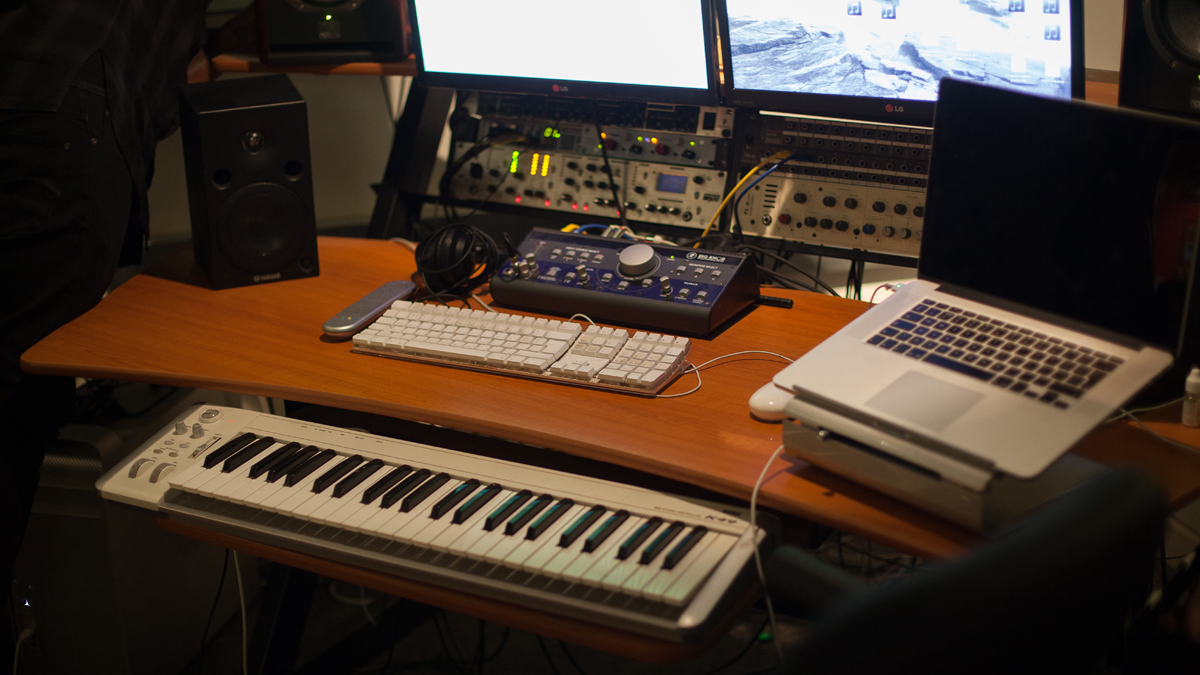
In the box
When it comes to software, do you use a lot of plugins and virtual synths?
Gavin: “Just to show how scatty and disorganised we are, we change software quite a lot. We used to use Sylenth quite a bit because we found some random sounds we really liked and made a bank of presets that we fucked with. We also use some stuff from the Minimoog and Logic Pro’s own EXS24 sampler.”
Duvall: “In terms of synth software processing we use Soundtoys, which is wicked. It has a plugin called Decapitator, which I think is amazing because it increases the density of the sound without raising the volume. Producing is all about how much headroom you leave so the overall mix is not too hot, so little plugins like that are fantastic for adding that sharpness to basslines, snares and claps. We use iZotope’s Ozone for individual sounds and vocals.”
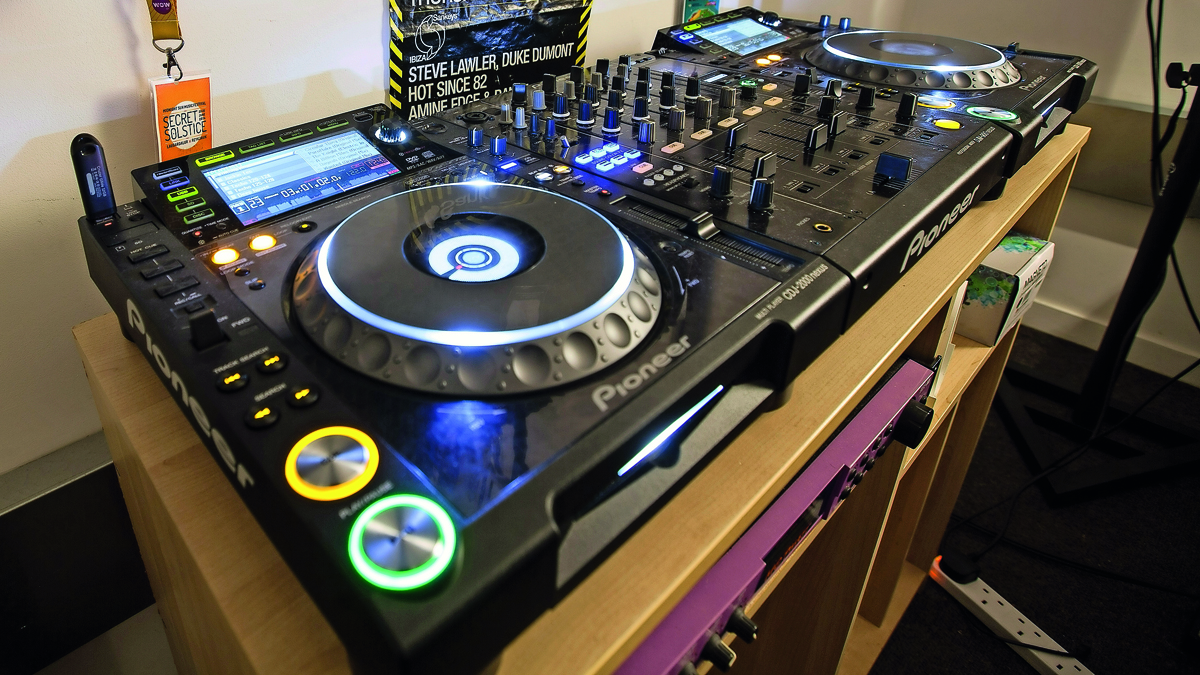
The DJ set-up
What technology is used in your DJ set-up?
Luke: “Two USBs and a Pioneer DJ900 and CDJ-2000s. We’ve never used a laptop and have always stuck with USBs; it’s easier when going to shows to just plug in and roll. We use rekordbox, mainly before shows and at home, just to see what works with what.
“I probably have about 1,000 songs on mine alone just to see what song fits the mood. I used to pre-plan my sets because I started DJing very late, so for me it was a confidence thing to have my setlist already made up. But after a while you kind of get into the swing of things and can start to play a normal set without building a playlist.
“We did an MTV event in Wales called Colourfest, which wasn’t really our type of event because it was for teenagers, but despite that we knew what type of songs would work.”
Gavin: “DJing can be very stressful actually, but I think that’s what makes for a very exciting and different DJ set. It’s easy to find 20 tunes that go into each other and have the right vibe, but we’ll thrown in a tune from ten years ago and that will take the set into a completely different tangent.
“I’m able to line up the beats and the breakdown, so, for example, if a breakdown is coming then it starts with the tune you’re mixing out from. We don’t practise as much these days, but we did put a lot of time and effort into our DJ sets.
“Luke and I go back-to-back, we’ll do maybe two tracks each, and Duvall uses the Maschine Mikro, which is like a beat pad triggering sounds from his laptop that will fit what we’re going to play, then we’ll run it through the mixer.”
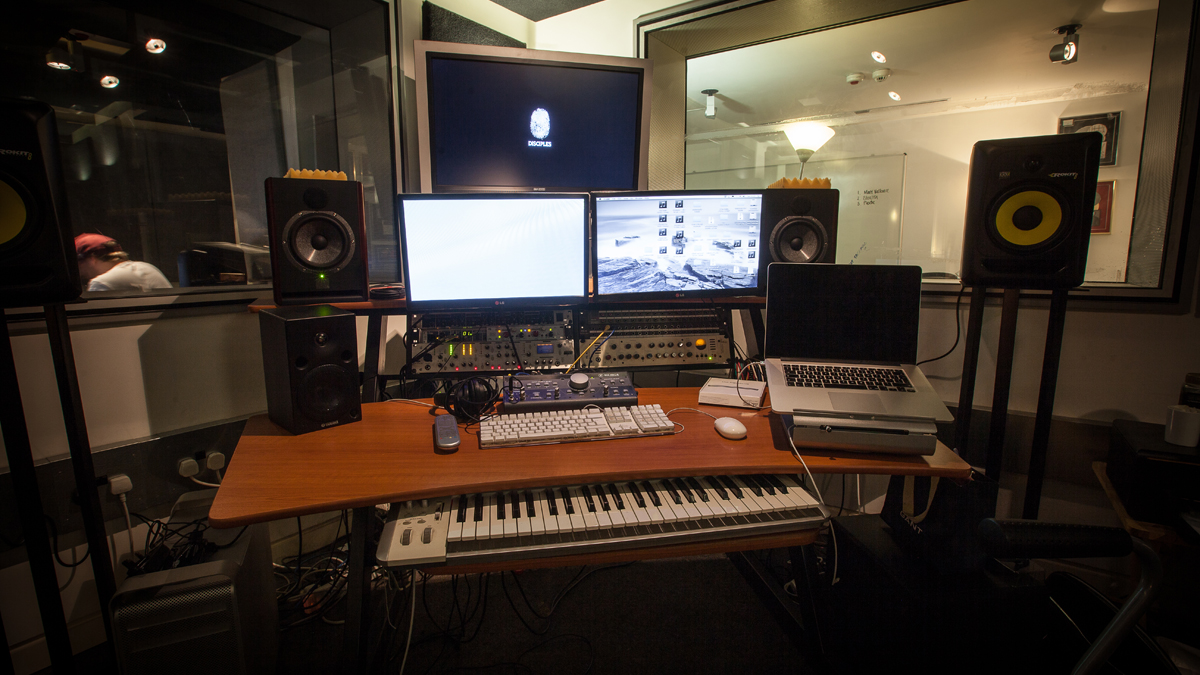
The future
How do you see Disciples evolving over the coming months and years? Is there a plan?
Duvall: “As long as we keep making whatever’s in our hearts, the plan will come together. As daunting as that might sound, it’s actually the only way we can work. We all have aspirations and goals, but in this industry the goals always shift. So I think the number one thing for us is to keep making what we love making and not divert from that.
“Going forward, we’d love to collaborate with more people, writers and producers – we’re not averse to doing that even though everything is in-house at the moment. We’re kind of interested in people who are not in House music; I wouldn’t want to shoot as far as to say Kanye West or Dre, but you never know [laughs]. It’s funny because we all have the same and different tastes in music.
“I like a lot of singer/songwriter stuff, like James Bay, Kodaline and Biffy Clyro; Luke’s into Hip-Hop, R&B and old-school House; and Gavin’s really into Techno, new and old.”
For the entire interview check out Future Music issue 296 on sale now. The latest release news and dates from Disciples can be found on their official website.
Future Music is the number one magazine for today's producers. Packed with technique and technology we'll help you make great new music. All-access artist interviews, in-depth gear reviews, essential production tutorials and much more. Every marvellous monthly edition features reliable reviews of the latest and greatest hardware and software technology and techniques, unparalleled advice, in-depth interviews, sensational free samples and so much more to improve the experience and outcome of your music-making.


